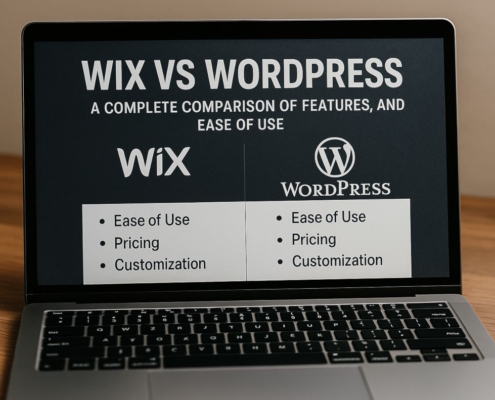What is the purpose of contract manufacturing?
It may be more cost-effective for companies to outsource the manufacturing of product components rather than make them in-house. Companies can achieve long-term growth by outsourcing part or full product production. If you want to be an asset to your company by helping to shape its production methods and processes, getting a handle on contract manufacturing is a must. In this post, we’ll go over the definition of contract manufacturing, its benefits and drawbacks, the different kinds of contract manufacturing, and some things to keep in mind when choosing a contract manufacturer.
The term “contract manufacturing” refers to a specific type of outsourcing in which a business pays another business to make a product or part of a product at their request. The contract manufacturer helps out with production and shipping, but the final product belongs to the business that hired them.
Companies that outsource their manufacturing often contact contract manufacturers with product designs in order to obtain production cost estimates. Production starts once the contract manufacturer and employing firm agree on a price. The contract manufacturer then supplies the hiring company with parts or a finished product. After hiring, the business focuses on getting the product sold.
Reasons to consider contract manufacturing
Among the many advantages that contract manufacturing can provide to a company are:
1. Saving money
A company can lower its operational expenses by taking part in contract manufacturing. It reduces spending on things like buying, maintaining, and fixing equipment, as well as on paying for trained labor, salaries, and benefits for entire teams. Why? Because these resources are already at the disposal of contract manufacturers, and they can crank out the goods at the agreed-upon price.
2. Enhanced production efficiency
Having some components made by contract manufacturers can drastically cut down on production time. Once manufacturing is complete, the business can shift its attention to packaging and delivering the final product to clients. This ensures that consumers receive their orders promptly, which in turn can boost interest in and devotion to the brand.
3. Market entry made easier
Through contract manufacturing, a business can rapidly get from idea to finished product. Fast product launches are possible when businesses use the resources and expertise of contract manufacturers. A company can get an advantage over its rivals by entering the market early and taking advantage of the time to increase its market share.
4. Deepened understanding of technical aspects
Manufacturers that work on contract have the ability to identify hazards in product designs. In order to help the hiring firm reach its goal, they can offer suggestions for improving the designs. As a result, employing companies can save money by fixing product issues before manufacturing even starts.
5. Maximized productivity
Contract manufacturers handle the bulk of production, allowing employees more time to focus on design and marketing. As a result, workers will be free to focus on other, more productive parts of the company’s operations. This puts the business in a better position to increase the scale of its operations by increasing productivity.
Problems with outsourcing production
Contract manufacturing presents a number of difficulties, such as:
1. Concerns around intellectual property
There are difficulties associated with sharing intellectual property with another business. The hiring firm’s products may be in direct competition with those that other companies manufacture. Entering into a legally binding agreement with a contract manufacturer that specifies acceptable conduct and potential consequences might help a corporation mitigate this risk. Also, make sure to register your designs with the right authorities.
2. Lack of oversight
The business relinquishes control of the final product to the manufacturer when it contracts out production. It is unable to guarantee that they adhere to the precise protocols. In order to keep product quality high and customer expectations clear, it is critical for the contract manufacturer and client to communicate often.
3. Difficulties in communicating
Businesses can lessen the impact of problems with schedules, product specs, and capacity data by improving their communication. Since there are additional parties to educate, this may be particularly relevant when working with contract manufacturers. Before beginning to communicate effectively with a corporation, it is wise to do some background research on them.
Important considerations when assessing contract manufacturers
When assessing potential contract manufacturers for your company, keep the following in mind as a manager:
1. Market understanding
All reputable contract manufacturers keep up with the latest news and trends in the market. Their involvement and visibility in the field contribute to the growth of their brand, which in turn inspires trust among investors. They monitor changes in the market and make adjustments accordingly.
2. Certification
Look for a contract manufacturer that follows ISO manufacturing quality standards or has another accreditation that proves they will provide exceptional service. An organization’s quality management system must adhere to the criteria laid out by the international standard known as ISO 9001:2015. When working with authorized contractors, clients can be certain that they will receive top-notch materials, and components.
3. Automation
Which contract manufacturer might be a good fit for a project depends on the parts’ complexity. Products with complicated components are best handled by manufacturers that use automation. In other words, compared to businesses without automated technology, they can make parts that fit perfectly in less time.
4. Adding value
After production is complete, value-added services include product assembly, kitting, and shipping. Prior to signing an agreement, it is crucial to negotiate these supplementary services with manufacturers. Since this ensures uniformity in the product and simplifies the production timeline, it is beneficial for businesses, particularly those who manufacture all product parts in one location.
5. Conformity with regulations
One important aspect in assessing the company’s viability is the prospective manufacturing contractor’s compliance with regulations. Important factors to think about include meeting the criteria of both the host country’s regulations and the selling location’s laws. Make sure to go over all of the paperwork for possible partners before deciding on a contract manufacturer.
6. Staff members
People are the most important part of any manufacturing process. Verifying the competence of the outsourced company’s staff is crucial to guarantee their suitability for the job. To evaluate the proficiency of the production process, you can check the quality of final product samples.
Advice on Choosing a Contract Manufacturer
If you’re an employee looking to find a reliable contract manufacturer for your employer, consider the following:
- Talk to the makers about what they’ve done in the past.
- Get to know manufacturers’ skills and background by keeping in touch with them. Get information on the projects they’re working on for your sector on a regular basis. You can also inquire about the difficulties they faced while producing the product and the creative ways in which they overcame those difficulties.
1. Evaluate contract manufacturers
Having data on different manufacturers on hand is useful. Look over the details and decide which manufacturer is best for you. If your company’s manufacturing budget is tight, you might have to go for a less expensive manufacturer.
2. Examine the production site of the manufacturer
Check with the contract manufacturer to see if they have the necessary tools for the job. You must be well-versed in your project and all of its prerequisites in order to carry this out successfully. Good signs of a trustworthy contract manufacturer include equipment that sticks to calibration and maintenance schedules.
3. Find out what the manufacturer is capable of
When choosing a contract manufacturer to work with, it’s crucial to consider their track record of timely order fulfillment. The output that the contract manufacturer achieves is dependent on various production conditions, such as the availability of power, storage capacity, equipment, and dedicated staff. For reliable, on-time product delivery, look for a contract manufacturer that has enough manufacturing capacity.
4. Think about the distance
An essential consideration when selecting contract manufacturers is the proximity to their location. This is due to the fact that it can be required to personally visit the factories to verify that they are adhering to all guidelines and producing goods of the required quality. For products with a near-term expiration date, being close to the manufacturer’s facility means faster delivery.
Methods of outsourcing production
There are various types of contract manufacturing, such as:
- Hiring workers: If a company doesn’t have enough workers to make a product, it can hire outside workers to help. In such instances, the business typically possesses the required machinery for manufacturing. The company might recruit people with specialized knowledge or those who can do a lot of routine work.
- Equipment rental: Businesses can rent out entire facilities, pieces of machinery, or even just the tools they need to get the job done. In most cases, this happens when the desired output exceeds the available resources. This could also happen if it needs to be made with very expensive equipment.
- Part-time production: It is possible for a business to manufacture some parts of a product in-house and hire a contract manufacturer to make the remaining parts. This guarantees that only experienced and competent manufacturers will make these components. Depending on the management and communication, part-time production can shorten the total production time.
- Full-scale production: Production on a grand scale occurs when a company contracts with a manufacturer to create all of the product’s parts. As far as contract manufacturing goes, this is by far the most common. When this happens, the company gives the producer full control over the whole creation process. Most of the time, the contract manufacturer works on both the design and production of the product.































